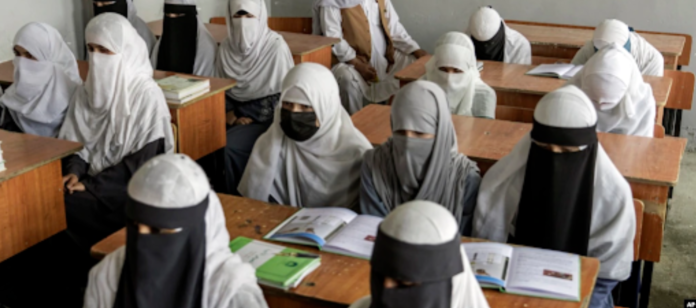
By Amanda Ojeda
On August 30th, 2021, the United States finalized the withdrawal of troops from Afghanistan, officially ending the War in Afghanistan. Unfortunately for many Afghan citizens, especially young girls and women, this resulted in the country being subjected to the control of the Taliban. Since then, young women have been denied any higher education, aside from religious schooling. However, a recent policy may change this.
The Taliban government announced that Afghan girls will be allowed to take their graduation exams, but many young girls are confused as to how they could possibly take the exam with the expectation to do well, when they have been locked out of classrooms and have had no access to textbooks and the curriculum required.
The exam will be distributed in 31 out of 34 of Afghanistan’s provinces, since the remaining 3 are generally scheduled for a later date. The exam consists of 14 subjects with 10 questions each, all taken in the span of a day.
An 18 year old, Najela (she did not give her full name out of fear it may endanger her), states “We spent a whole year under tension and stress and haven’t read a single page of our textbooks. How can we possibly take an exam after a year and a half that the Taliban have kept school doors closed.”
Under the regime, girls are not allowed to pursue middle and high school education, work options are slim, they are mandated to be covered head-to-toe in public, and are not allowed in certain public grounds, such as parks.
Some go as far to say that this slight allowance may be the Taliban attempting to prove to the critics that they are not treating Afghan women and girls as badly as the media says. If this is the case, it certainly isn’t enough for the innocent lives that have been derailed and destroyed due to the extreme restrictions placed on their everyday lives.









